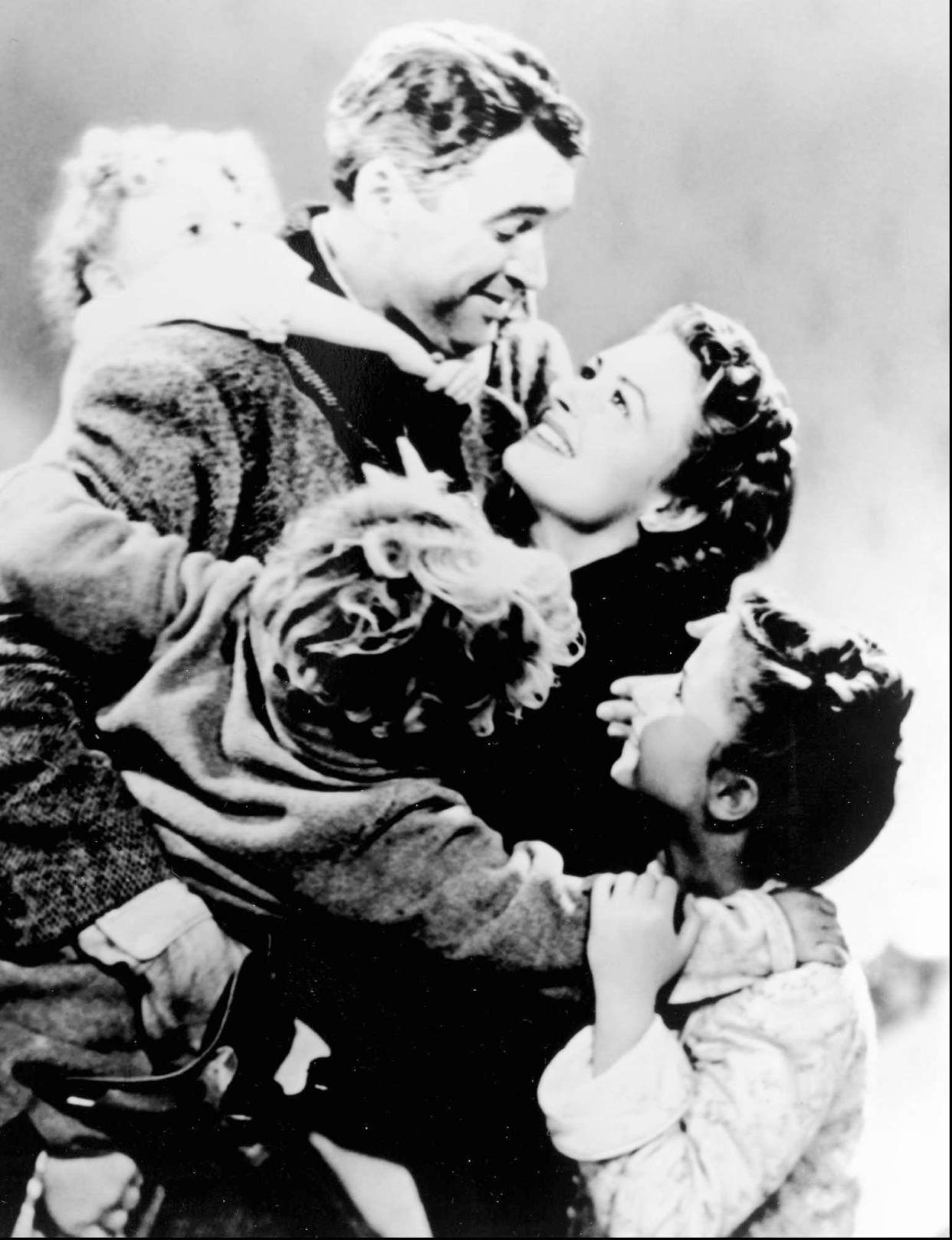Movies that celebrate the power of redemption, love

When my sister and I were still older children in the latter 1960s, my mom told us about a wonderful movie she had seen as a girl.
The plot centered around a man who tried to commit suicide on Christmas Eve, but an angel convinced him to change his mind by showing him what the world would have been like had he never been born.
The film she described was, of course, “It’s A Wonderful Life.”
After a lukewarm reception in 1946 and 1947 by audiences and critics on its initial run, it appeared “Wonderful Life” might be buried forever, even though it garnered six Academy Awards nominations (Best Picture, Best Director, Best Actor, Best Film Editing and Best Sound Recording and won an Oscar for Technical Achievement Award.
When my mom told us about “Wonderful Life,” it seemed impossible we would ever see it. This was in the era before anyone — or at least almost anyone — owned a VCR, or that movie videos were available.
But, due to a miracle in 1974, the film fell into public domain.
As a result, movie theaters and television channels began showing it — and a lost treasure was restored that has captured the hearts of hundreds of millions, perhaps billions, of people around the globe.
It’s the message of personal emotional redemption, of the power and worth of so-called common people, the many ways one solitary life can impact the fate of so many other people and the basic decency and love in most people’s hearts resonated with viewers.
I recently reflected on whether there are some hidden film treasures from the past 20 years, or so, that most people missed or didn’t get the first time they saw it.
Here’s part of my list:
—
“October Sky” (1999)
This film was based on the true story of former NASA engineer Homer H. Hickam and his struggles as a teenager in the 1950s pursuing his love of rocketry while growing up in a coal mining community in West Virginia.
In the movie plot, Homer (played by Jake Gyllenhall) and his three rocket-crazy buddies encounter a great deal of apathy, ridicule and even hostility — especially by Homer’s father (played by Chris Cooper) — for their efforts, including monetary challenges.
Their main sources of encouragement are a high school female teacher (played by Laura Dern), a post-World War II immigrant and their own stubborn determination.
The teacher encourages them to aim for state and national science fairs as a way to get scholarships and escape the inevitable drudgery after graduating from high school of being coal miners the rest of their working days.
The movie features plenty of dramatic conflict — but also emphasizes the power of the human will to find a way when all seems lost. The story also includes plenty of slices of humor.
The soundtrack is delightful, as they play 1950’s rock-and-roll songs during many of the scenes.
The ending is majestic and heartbreaking — both in the healing between a father and a son and in the fruits of sacrifice.
—
"Secondhand Lions" (2003)
The cast includes extraordinary actors Michael Caine and Robert Duvall. Haley Joel Osment and Kyra Sedgwick round out the top four characters.
The story is set in the 1960s or early 1970s and begins with single mom Mae (Sedgwick) unexpectedly dropping off her young teenage son Walter (Osment) to stay with his crusty bachelor great-uncles Garth (Caine) and Hub (Duvall) on their uncultivated farm and rundown house in rural Texas.
Secretly, she wants to get rid of Walter for a few months and for him to find a way she can get some of their money.
The uncles take in the boy grudgingly.
The uncles don’t have a television, radio or telephone; they often sit almost silently for hours on the front porch, shotguns on their laps to scare away traveling salesmen.
Within the first day or two, Walter runs away, but the uncles find him and convince him to come back to their place.
That opens a relationship that betters the personalities of Walter and his uncles.
As a challenge, the uncles order a zoo cast-off lion to hunt, but Walter convinces them to let him nourish it to health. The amiable lion soon adopts a nearby cornfield as his personal jungle, where it prowls harmlessly and undisturbed.
Walter hears tales from Garth about how the uncles spent 40 years in Africa as World War I soldiers, safari guides, mercenaries and other jobs, and that that’s how they made their money. But there's no verifiable evidence the tales are true and not lies about their mysterious past.
The plot is rich with other moments, dramatic and humorous.
The wrap-up starts when Walter’s mom shows back up. Walter refuses to reveal the uncles' money stash, despite a beating by her new boyfriend.
Walter then stays the rest of his youth with his uncles.
In the end, Walter — now an adult — gets a phone call that his two 90-something-year-old uncles had died in a bizarre accident, "with their boots on."
Shortly after, Walter finally learns the truth about who his uncles were. Walter delivers a classic final line that should bring tears to anyone with a heartbeat.
This article originally appeared on Bartlesville Examiner-Enterprise: Movies that celebrate the power of redemption, love

